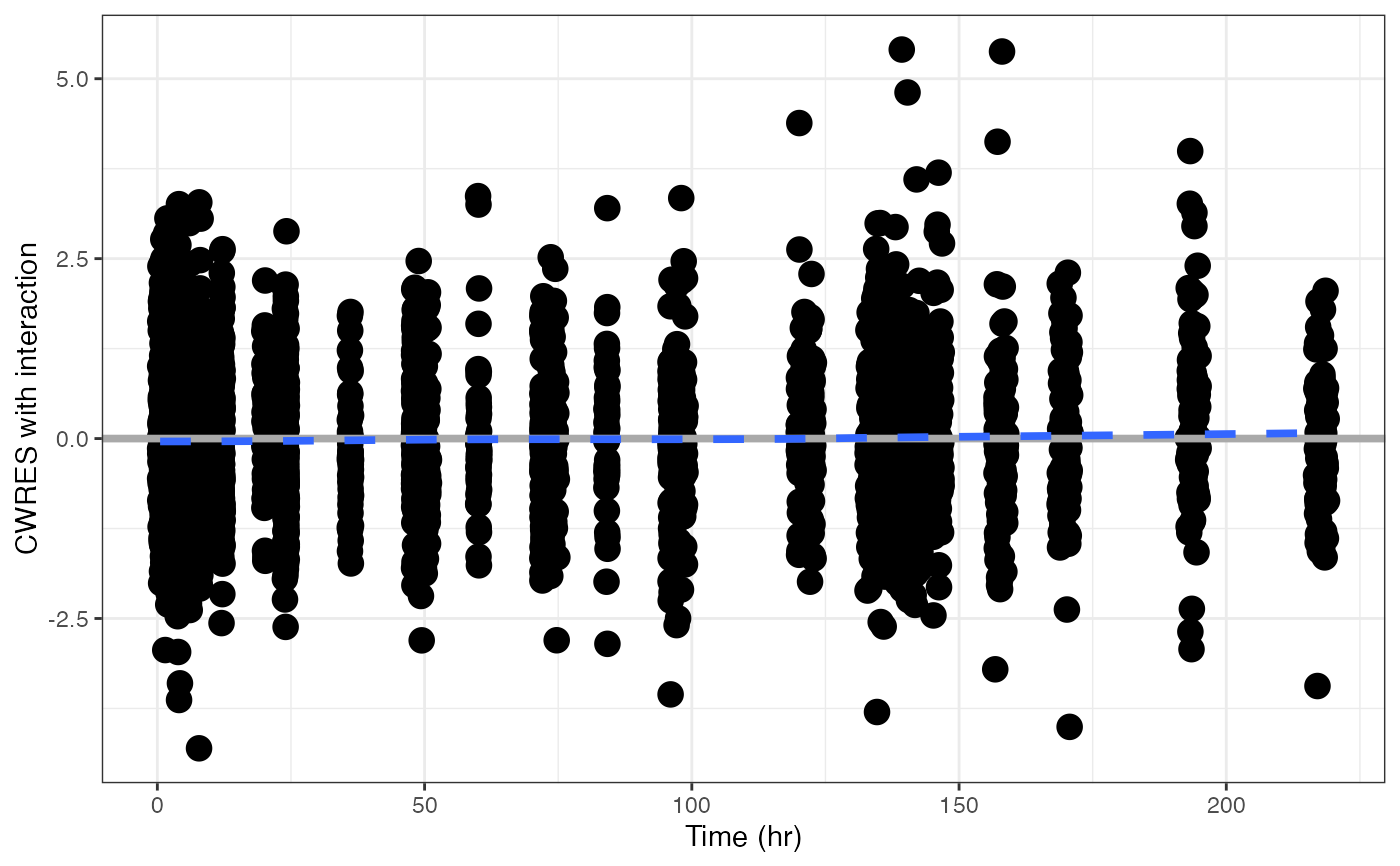Uses y_time to create the plots. Please see that
help topic and details here for other arguments to customize the plot.
cwres_time(df, x = pm_axis_time(), y = pm_axis_cwres(), ...)
cwres_tafd(df, x = pm_axis_tafd(), y = pm_axis_cwres(), ...)
cwres_tad(df, x = pm_axis_tad(), y = pm_axis_cwres(), ...)
cwresi_time(df, x = pm_axis_time(), y = pm_axis_cwresi(), ...)
cwresi_tafd(df, x = pm_axis_tafd(), y = pm_axis_cwresi(), ...)
cwresi_tad(df, x = pm_axis_tad(), y = pm_axis_cwresi(), ...)Arguments
Value
A single plot.
Details
Plots are generated using y_time,
which then calls scatt.
By default, the time unit is assumed
to be hours (hr). See the xunit argument
to y_time to change the time unit.
See the xby argument to y_time for a
convenient way to change the breaks for the x-axis (time).
Since this function creates a scatter plot,
both the x and y columns must
be numeric.
Examples
df <- pmplots_data_obs()
cwresi_time(df)
#> `geom_smooth()` using formula = 'y ~ x'
